As Pride month comes to an end, I want to shine a light on LGBTQ+ unpaid carers.
At Carers Leeds, we see you and we value you, and want to do everything we can to provide inclusive information, advice and support for all unpaid carers, regardless of gender or sexual orientation. We want all LGBTQ+ unpaid carers or anyone caring for someone from the LGBTQ+ community in our city, to feel welcome and safe to access our service.
Understanding the issues and experiences of LGBTQ+ unpaid carers is an important part of this. Alongside listening to carers day to day through our service, we conduct an annual survey. This year we had 679 responses, with 52 respondents identifying as LGBTQ+.
Some of the responses from LGBTQ+ unpaid carers mirror the findings of the State of Unpaid Caring in Leeds (2023) which reflects all 679 responses to our survey. This is that, whilst caring is hugely valuable and an inherently human act, providing unpaid care can have a negative impact on carers’ health and wellbeing, relationships and finances. Particularly when someone is providing intensive care, over time, without enough support. For example:
- 47% of LGBTQ+ unpaid carers said that caring had a negative impact on their physical health. 60% said that caring had a negative impact on their mental health.
- Just over a third of LGBTQ+ carers said they experienced poor sleep most or all the time; and a third said they experienced feelings of guilt most or all the time.
- Just over 50% of LGBTQ+ carers said they didn’t have enough meaningful contact with family and friends. 20% of LGBTQ+ carers said they always or often felt lonely.
- 43% of LGBTQ+ unpaid carers who were not working, would like to be.
- A third of LGBTQ+ carers were struggling to make ends meet, were worried about monthly living costs and whether they could manage in the future. A significant proportion had gone without essentials in the last 12 months.
The survey asked unpaid carers about the things they are most concerned about right now. Here there was a difference between LGBTQ+ unpaid carers and the whole survey responses. LGBTQ+ unpaid carers highlighted accessing health services, opportunities for carer breaks and accessing paid care, none of which made the top three concerns based on the whole survey responses. Carers Leeds will ensure that, through our work in these areas, we pay particular attention to the concerns of LGBTQ+ unpaid carers.
I have also been reflecting that, whilst some carer issues may be universal, the lived experience of LGBTQ+ unpaid carers may be different. We will continue to listen, learn and not make assumptions.
Carers Leeds is committed to using the findings from this briefing and the wider survey report to help improve the lives of all those providing unpaid care in Leeds which, of course, very much includes those who identify as LGBTQ+.
Claire Turner, Chief Executive



